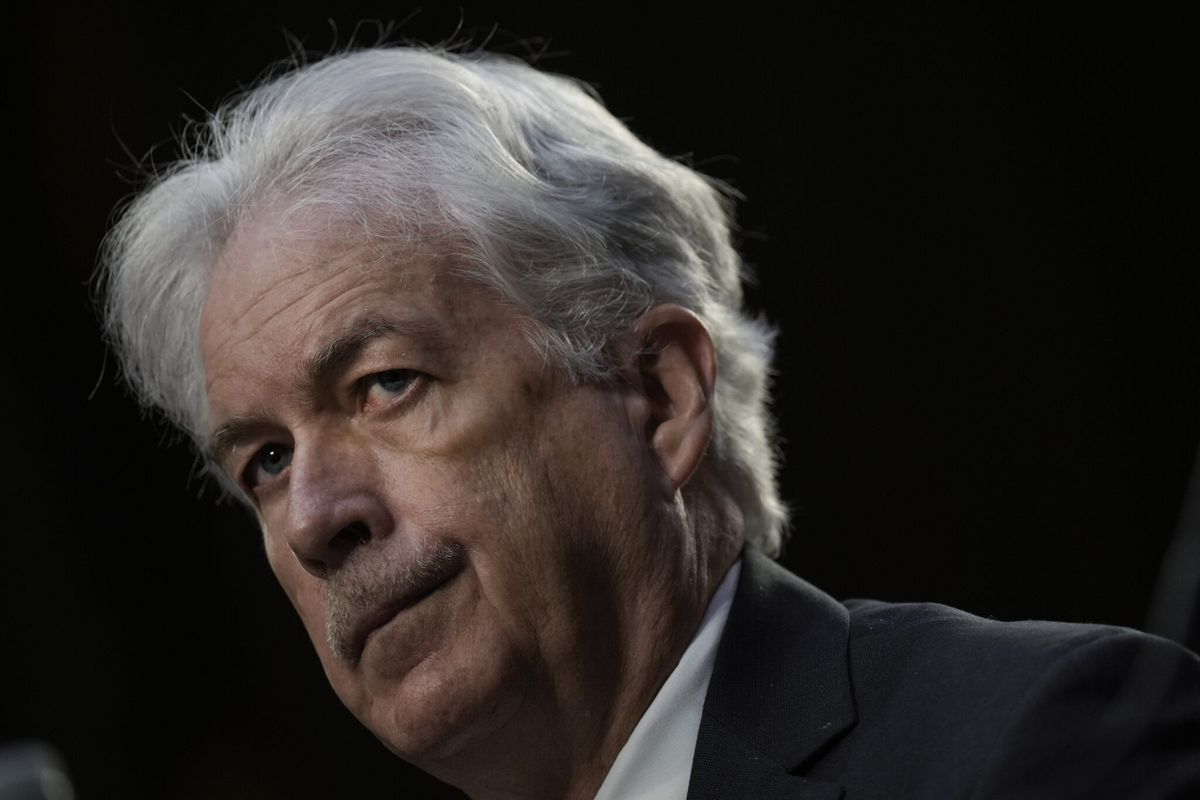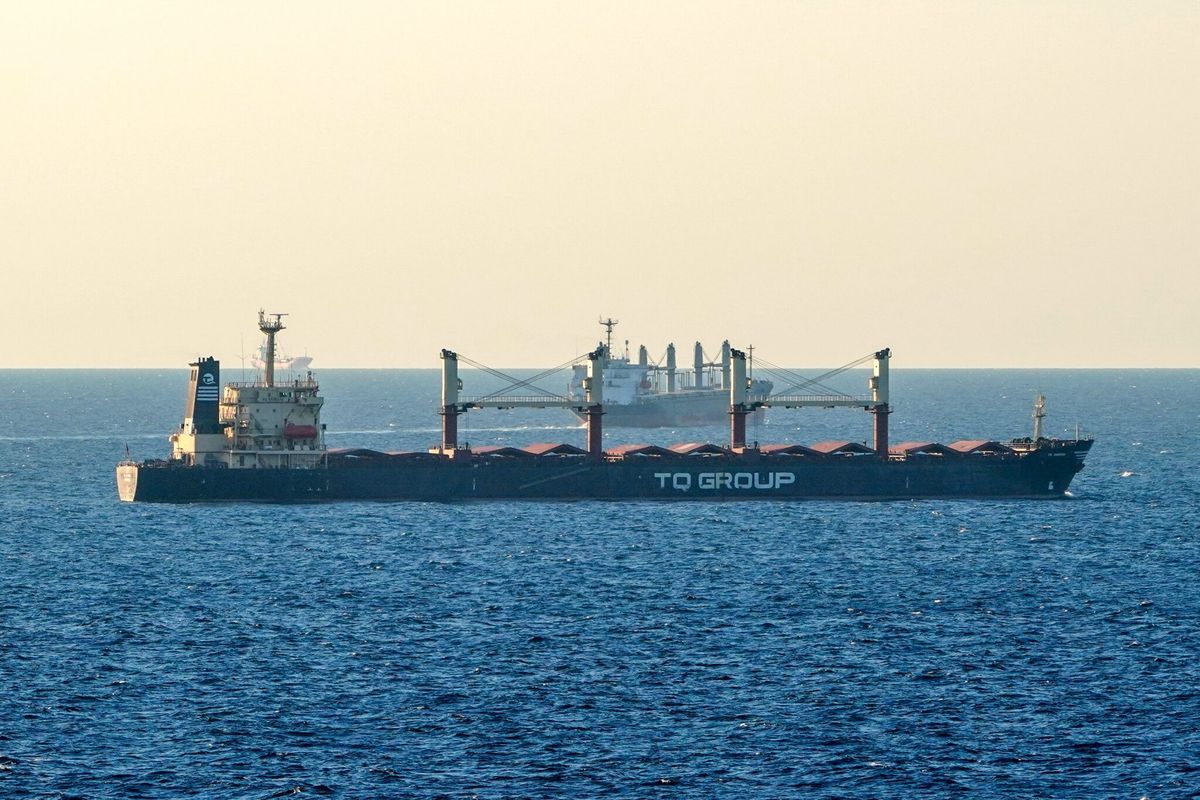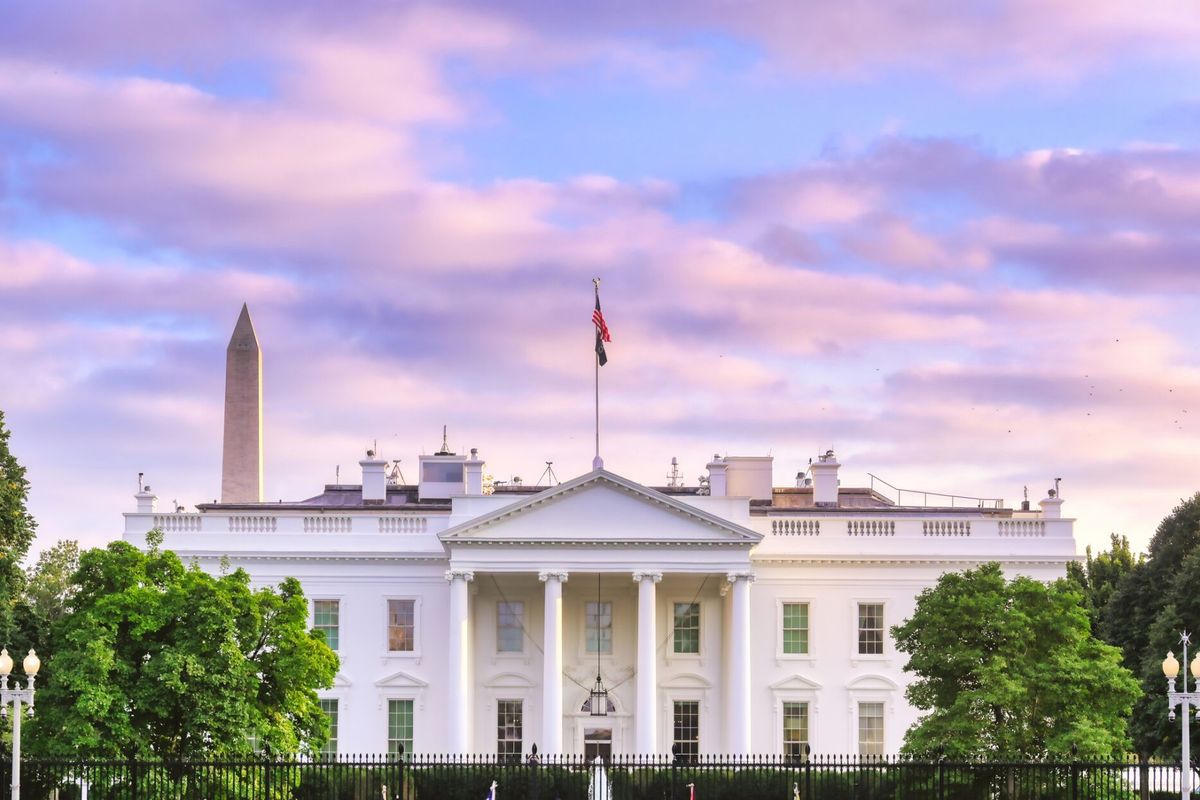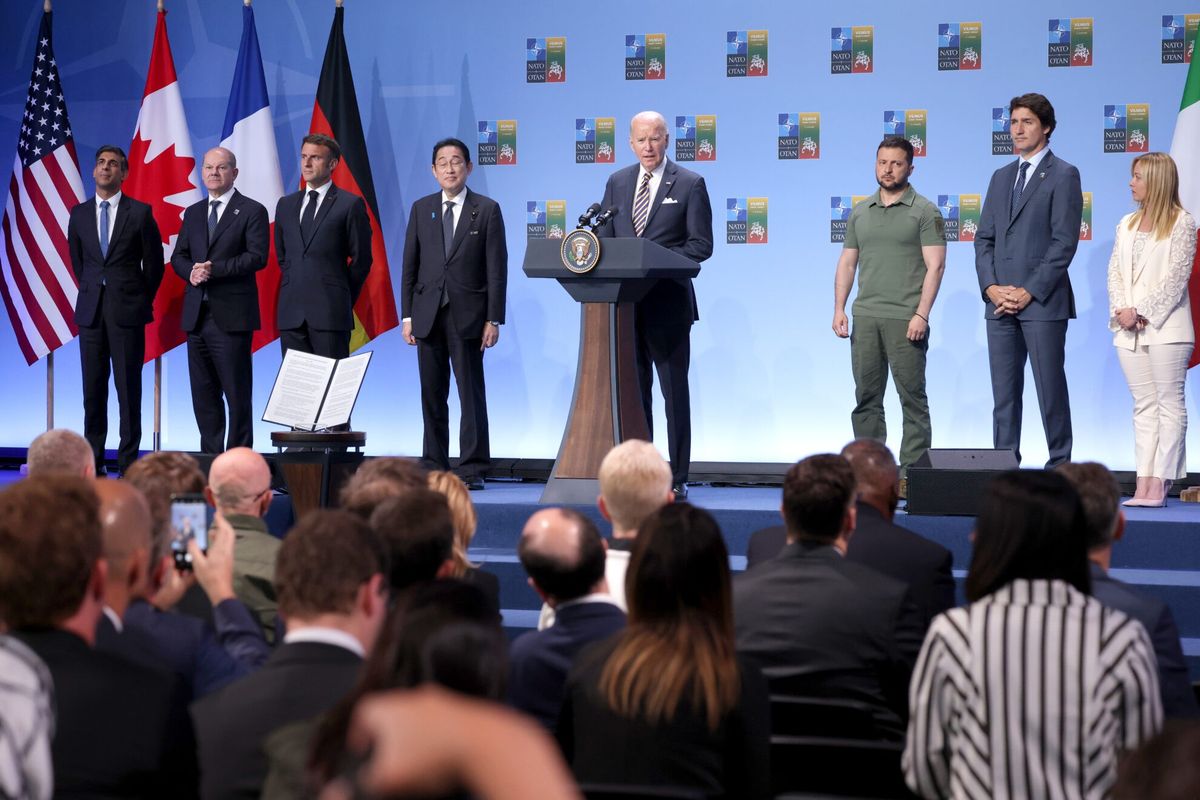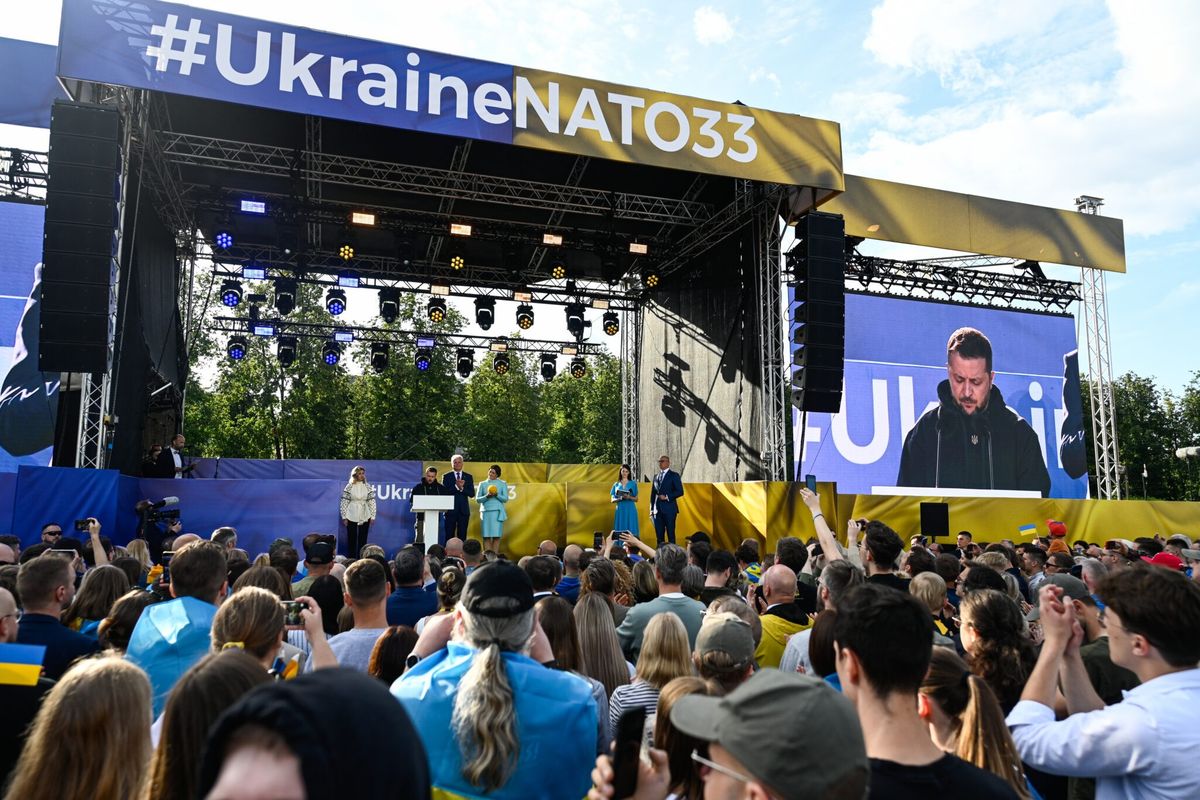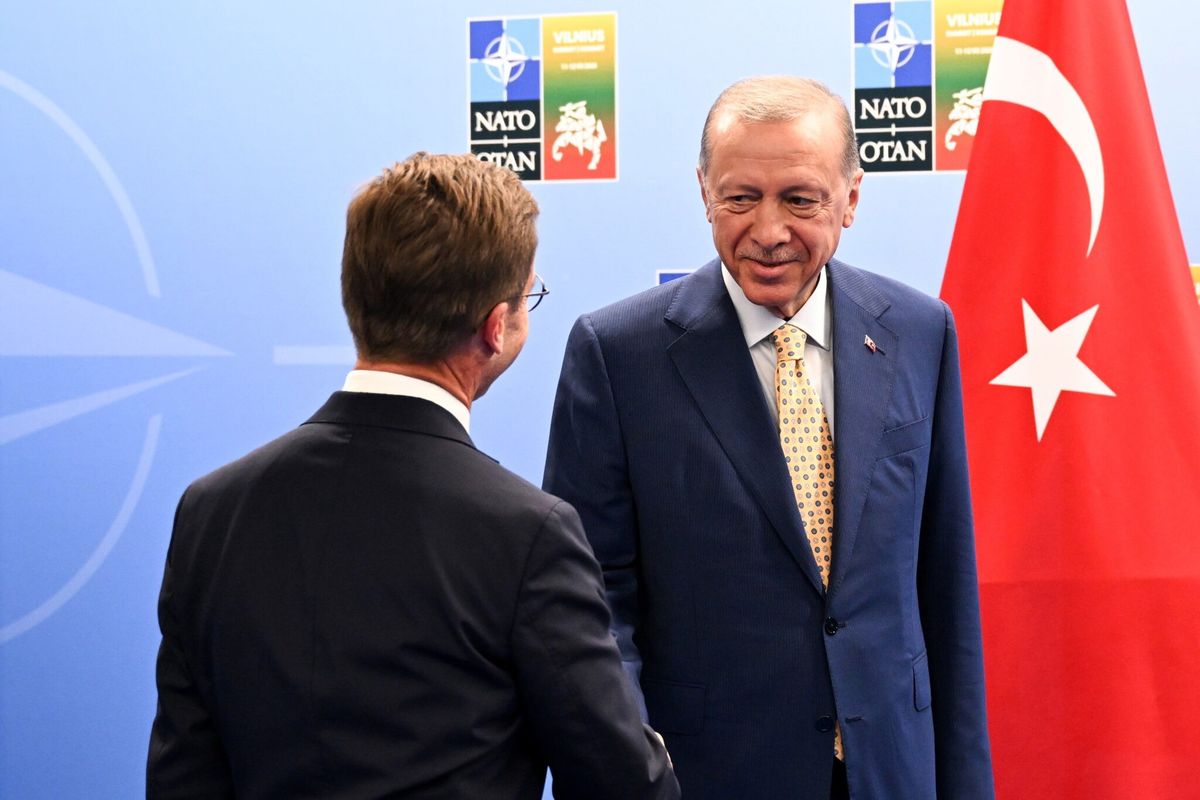CIPHER BRIEF REPORTING & EXPERT ANALYSIS – Just a week after Wagner Group Chief Yevgeny Prigozhin launched the final mission of his mercenary career in the form of a revolt against Russia's leadership, President Vladimir Putin is moving swiftly to identify and punish those who may have helped while western experts assess the fissures in Putin's regime.
After a months-long feud between Prigozhin and Russia’s defense ministry, Prigozhin's mutinous revolt brought thousands of mercenaries within a few hundred miles of Moscow. And then, they stopped. Prigozhin’s forces halted their advance and headed back to their bases, as Prigozhin himself accepted a deal that sent him into an uneasy exile.
Whatever happens next, it will be in the context of fresh “cracks” in the power of Russian President Vladimir Putin, U.S. Secretary of State Antony Blinken told ABC's This Week after the deal was brokered, adding, "I don't think we've seen the final act."
And that seems to be playing out as suspicions swirl over the fate of several of Russia's most senior generals including Gen. Sergei Surovikin, who served as the deputy commander of the Russian group of forces fighting in Ukraine and hasn't been seen in public amid rumors that he has been detained.
As the hunt for collaborators continues in Moscow, Prigozhin's rebellion and subsequent exile represents the loss of one of the Kremlin’s most effective military leaders throughout the war in Ukraine, where Wagner Group fighters have been responsible for Russia’s only meaningful territorial advances in nearly a year.
So, what happened? And how much of an impact will Prigozhin's rebellion have on the Russian mindset about the war and their president? Here's a recap:
Friday, June 23:
- Wagner Head Yevgeny Prigozhin releases a series of video and audio recordings that cast doubt on Russian President Vladimir Putin’s justification for the war in Ukraine, while saying Russia's Defense Ministry has been "deceiving" Russian people.
- Prigozhin said the “evil” of Russia’s military leadership “must be stopped,” announcing a “march for justice” against Russian forces.
- Russia’s FSB security service then opens a criminal case against Prigozhin for calling for armed mutiny, the TASS news agency says, according to the country’s National Antiterrorism Committee.
Saturday, June 24:
- Prigozhin announces that his forces have crossed from Ukraine back into Russia, saying they are ready go “all the way,” as thousands of mercenaries advance east.
- Prigozhin says this Wagner mercenaries have taken the Russian city of Rostov-on-Don, posting a video of himself in a Russia military command center.
- Russian military helicopters fire mercenary column, seemingly on enroute to Moscow.
- Russian’s defense ministry calls on Wagner forces to leave Prigozhin, claiming they have been “deceived and dragged into a criminal adventure.”
- Putin vows to crush the “armed mutiny,” and calls Prigozhin’s actions treasonous and a “stab in the back”.
- Ramzan Kadyrov, leader of Russia’s Muslim-majority Chechen Republic, announces that his forces are ready to put down the revolt.
- Ukrainian President Volodymyr Zelensky says on Twitter that “Russia’s weakness is obvious," while Ukrainian Parliament Member Volodymyr Ariev called it a “typical Russian game of thrones.”
- Belarusian President Alexander Lukashenko says he helped broker a deal Prigozhin, who then instructs his forces to leave the military headquarters in Rostov-on-Don. The Kremlin adds that Prigozhin will leave for Belarus and no charges will be brought against him.
Sunday, June 25:
- U.S. Secretary of State Antony Blinken says this weekend’s events have exposed “cracks” in Putin’s power, adding, "I don't think we've seen the final act."
Monday, June 26:
- President Putin releases first video statement by Putin since the revolt.
- Russia’s Defense Ministry releases a video showing Russian Defense Minister Sergei Shoigu speaking with officers at a command post. The video is the first time Shoigu has appeared in public since the Wagner Group mutiny over the weekend.
Tuesday, June 27:
- Wagner boss Yevgeny Prigozhin travels in exile to Belarus under an agreement that halts his mutiny, while President Putin praises Wagner mercenaries for avoiding civil war.
- The Russian Federal Security Service (FSB) says it has dropped the criminal case against members of the Wagner Group who participated in the mutiny against Moscow over the weekend. Russian state media said the charges were dropped since the mutineers “ceased actions directly aimed at committing the crime.”
Wednesday, June 28:
- Belarusian President Alexander Lukashenko says he convinced President Putin not to "wipe out" Prigozhin, brokering the deal that brought Prigozhin to his country.
- The New York Times releases a story that cites U.S. officials, who say senior Russian General Sergei Surovikin had knowledge of Prigozhin’s scheme to mutiny against Russia’s military heads. Authorities and analysts speculate whether Surovikin, a respected leader and former top commander in Ukraine, may have aided Prigozhin in his short-lived insurrection.
The Cipher Brief tapped former CIA Chief of the Central Eurasia Division and former Chief of CIA's Counterterrorism Center Rob Dannenberg and former senior CIA Operations Officer Paul Kolbe, who is also the former director of The Intelligence Project at Harvard University's Belfer Center for Science and International Affairs, for their take on what Prigozhin's march taught us about Putin's Russia.
Rob Dannenberg, Former Chief of CIA's Central Eurasia Division
Rob Dannenberg served as chief of operations for CIA’s Counterterrorism Center, chief of the Central Eurasia Division and chief of the Information Operations Center before retiring from the Agency. He served as managing director and head of the Office of Global Security for Goldman Sachs, and as director of International Security Affairs at BP. He is now an independent consultant on geopolitical and security risk.
Paul Kolbe, Former Senior CIA Operations Officer
Paul Kolbe is former director of The Intelligence Project at Harvard University’s Belfer Center for Science and International Affairs. Kolbe also led BP’s Global Intelligence and Analysis team supporting threat warning, risk mitigation, and crisis response. Kolbe served 25 years as an operations officer in the CIA, where he was a member of the Senior Intelligence Service, serving in Russia, the Balkans, Indonesia, East Germany, Zimbabwe, and Austria.
The Cipher Brief: As a former Chief of CIA's Central Eurasia Division, what struck you most about this revolt, assuming that Prigozhin could not have gotten so far on his own?
Dannenberg: Prigozhin likely felt that he was going to have a significant amount of support from the Russian military and maybe other power elites in Moscow when he started this. And whatever the actual number of troops he had on the ground - Wagner itself consists of something like 25,000 troops - and engaged in the march was anywhere between 5,000 and 7,000. He captured Rostov-na-Danu without any resistance. He marched to within 120 miles of Moscow without any resistance.
Anyone with a military background knows it's one thing to march into an area where you've got the support of the local population, which was clearly the case if you look at the videos from Rostov. But as you get further from your base of support, you have 5,000 to 7,000 guys who are going at it, you're marching on Moscow, a city of 13 million people.
You've got the Rosgvardiya – the National Guard of Russia - which is run by Viktor Zolotov, and he reports to Putin. They've got anywhere from 70 to 100,000 loyal, well-armed, reasonably well-trained soldiers. Prigozhin can't match up with that unless he's got an army materializing out of Moscow - made up of defectors from the Russian army - who are going to join him. It was likely clear to Prigozhin whatever support he thought he had when he began this thing, didn't materialize. That changed the dynamic.
At the same time, his former ally, Ramzan Kadyrov had 15,000 Chechens marching up the road towards him at Rostov-on-Don. However dramatic it might have seemed to all of us munching on our popcorn and watching this unfold, the numbers just didn’t add up for Prigozhin and he’s an experienced enough guy to know that whatever deal Belarusian leader Alexsandr Lukashenko was offering, wasn't worth the hot air that was used to pass it on.
This didn't start on June 22nd. Prigozhin has been mouthing off against Russia’s Defense Minister Sergei Shoigu and General Valery Gerasimov and increasingly, the Russian elites and even Grandpa - a euphemism for Putin - for months now and getting away with it. This does show a real fissure in the myth of Putin's absolute authority and his invincibility.
The Cipher Brief: Have you seen anything like the rebellion by Prigozhin in recent Russian history?
Kolbe: Some are drawing parallels with the coup attempts in 1991 and 1993 but I think this was a much different situation. During those coups, a revanchist old guard was trying to preserve the old order. In this case, Prigozhin was challenging the established regime. The question is whether he actually wanted to replace the players within the same system, or if he actually had a political agenda or a new vision for Russia other than one that fights the war against Ukraine more effectively.
A key question in those early hours was who will side with whom? Who could Putin count on to stick by him? In midst of the coup in 1993, we saw tank divisions heading to Moscow, but no one knew on which side they would fight. Putin may not have known in real time, which units would remain loyal, which units would support Prigozhin, and which units would simply stand by and watch. Dictators fall when the henchmen and privates stop obeying orders to shoot.
The Cipher Brief: Based on your experience, how big of a deal is this?
Dannenberg: It's a big deal. Putin has built a model of governance over the last 23 years where he lets competing factions below him, whether it's oligarchs or security service or military, whatever, fight it out. And then in the end, they go up the chain to the godfather for resolution. And now, you've just had one faction, one clan, the Wagner Group, just break that paradigm and launch off and do something dramatic that captured headlines around the world. Prigozhin’s march was broadcast live around the world from Tehran to Beijing but not surprisingly, did not have the same kind of coverage in Moscow.
This has had reverberations and it came right on the heels of the Modi-Biden visit in Washington. This genie doesn't go back in the bottle but that doesn't mean there aren't things that are still unfolding. We're already starting to see them. There is going to be a purge of Wagner, Prigozhin's going to get arrested and interrogated. He clearly had support or thought he had support within the power structure in Moscow. Putin's must get to the bottom of that because if Prigozhin lives and Wagner survives in any fashion, this could happen.
The Cipher Brief: It seems safe to assume that there was a significant amount of planning for this on the part of Prigozhin.
Kolbe: You don't move thousands of troops, and hundreds of vehicles, cross a border, and take over the headquarters of a war fighting command on a whim. I do believe there was significant planning. There must also have been a tremendous amount of communication that was taking place between units, between leaders, between individuals along the lines of whether we'll support you, or we'll stand by and not oppose you. A key question is why Russian intelligence agencies didn’t pick up on this planning. Mark this as another massive intelligence failure on the part of the Russian services.
The Cipher Brief: Russia has used mercenary groups around the world for decades, maybe even longer. How did this one spin so out of Putin's control, and did he allow it to happen?
Kolbe: Prigozhin has long served Putin’s and Russia's interests. The degree of support and amount of power Prigozhin accumulated over the course of the last few years is truly remarkable. He has propped up friendly governments, helped secure resources and contracts, acquired critical minerals and gold and diamond mines. Wagner has also propped up other dictatorships that Russia found useful and has served as a very effective arm of the state around the world.
They were critical in planning during the course of the war in Ukraine and have proven to be the most effective fighting force for Russia, for more than a year. The losses Wagner suffered in the fight for Bakhmut bought time for the Russian army to recruit and reorganize. These contributions bought Wagner a high degree of latitude, but we also saw Prigozhin on a steady path of getting too Bolshoi for his britches. He began to see himself as untouchable and irreplaceable. In turn, he earned the jealousy and enmity of the Russian regular army. Prigozhin’s power began to morph from asset to threat, as did his influence with the hard right nationalist factions that believe Putin has not been cruel enough in his conduct of the war.
The Cipher Brief: Now that a deal has been struck, can Putin really afford to allow Prigozhin to live?
Kolbe: Prigozhin has been saying that he's not against Putin, and that he is still in favor of the special military operation. But not he's not walking that talk. His very actions are hammer blows on Putin’s legitimacy and on his pillars of power. So, I have a hard time seeing what the shape of a settlement would be that leaves them both alive in the long term.
The Cipher Brief: Turning to Ukraine, let's presume that Wagner is off the battlefield, or at least in its current form. They’ve been the spearhead of some of the most effective Russian operations in Ukraine. If they're off the table, how do you see this playing out? If they don't have the shock troops of Wagner with their swagger and you've got disarray at the senior levels of Russian leadership, this seems to present a witch's brew of dynamics and atmospherics for those lower-level Russian leaders to try to manage on the front line. How do you square all of this?
Dannenberg: There's no way that what happened over the last weekend isn't known to every Russian serving on the front lines in the Ukraine. And if you stick your head up over your trench and you see those Leopard 2 tanks coming at you, are you going to stand there and fight now, or are you going to throw your rifle down and get the hell out of there while you can?
It's not just for the President anymore. Are you getting your daily national security briefing? Subscriber+Members have exclusive access to the Open Source Collection Daily Brief, keeping you up to date on global events impacting national security. It pays to be a Subscriber+Member.
The Cipher Brief: What kind of opportunity does this provide President Zelenskyy in Ukraine, and how would you look to exploit that opportunity in the best way?
Kolbe: In the information sphere, Ukraine will use Prigozhin’s own condemnations of Russia as further evidence of a corrupt and brutal regime that operates without legitimacy – a criminal state. Ukraine may also use this to drive wedges in different factions in Russia, and to draw international fence sitters to its side. On the battlefield, Ukraine will obviously be looking for opportunities to exploit Russia’s distraction and any diminished combat capability. We’ve not yet seen peak counter-offensive operations, and anything coming now will be designed to sow chaos, fear, confusion in hopes of sparking a rout.
The Cipher Brief: How much of an impact will Prigozhin’s message that the war was predicated on lies have across Russian society?
Kolbe: Prigozhin said out loud, what everyone knows and has been thinking. However, as the war continues, Prigozhin’s words and actions will have an impact. The 1993 coup to depose Yeltsin failed, but it set the stage for Putin’s subsequent rise. This mutiny will reverberate long into the future, and even if Putin is left standing, it will be from a weaker position in a Russia where deep fault lines have been exposed.
Read more expert-driven national security insights, perspective and analysis in The Cipher Brief because national security is everyone’s business







